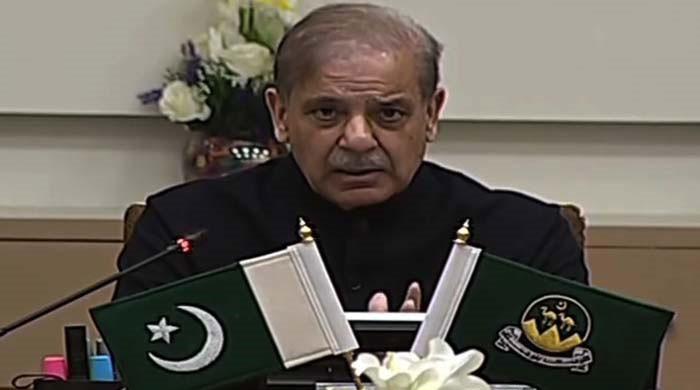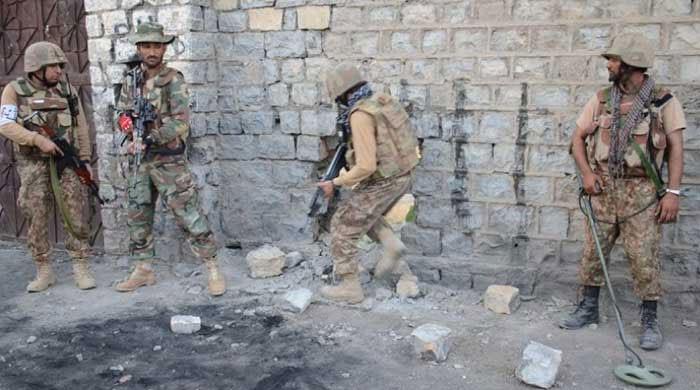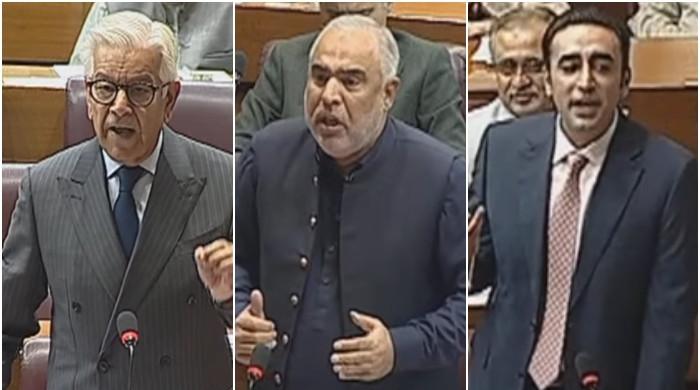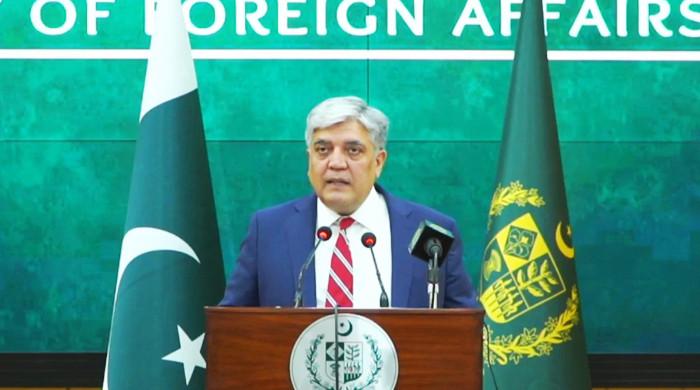Pakistan Army to be called in again for implementation of coronavirus SOPs
NCOC decides to make vaccine mandatory for domestic travel from August 1
July 13, 2021
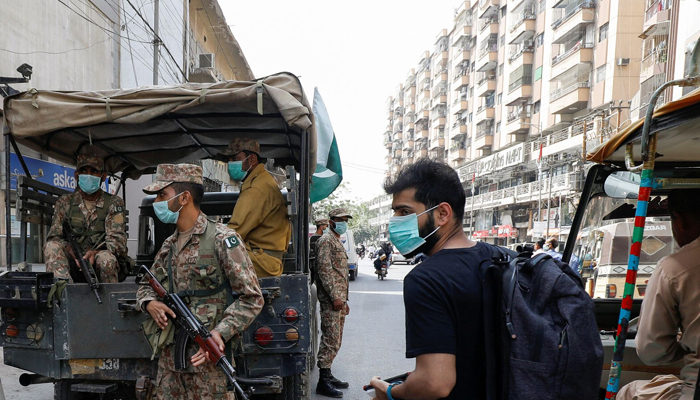
- COVID-19 vaccine mandatory for domestic travel from August 1.
- Pakistan crosses 20 million inoculations mark.
- Vaccine made compulsory for people visiting tourism spots.
ISLAMABAD: The Pakistan Army will be called in once again for implementing the government's mandated coronavirus standard operations procedures (SOPs), the National Command and Operations Centres (NCOC) decided on Tuesday.
The Pakistan Army was last mobilised in April to enforce coronavirus safety protocols in several parts of the country after Prime Minister Imran Khan had sought its help in curbing the spread of the virus.
The NCOC has also decided to make coronavirus vaccination mandatory for domestic travel from August 1, a statement from the forum said. Meanwhile, international flight operations have been increased to 50%.
"The decision to increase international flight operations has been made to repatriate Pakistanis stranded abroad," the statement said, adding that the decision would come into effect from July 15.
The move to increase flight operations will allow the government to bring back 2,500-3,000 Pakistanis every day, and all the airports and relevant authorities have been directed to make necessary arrangements to accommodate the passengers, the forum said.
The forum has decided to impose smart lockdowns with the help of heat maps. The meeting was informed that the authorities in Islamabad, Multan Peshawar, and Gujranwala had taken action against people violating COVID-19 SOPs.
The authorities in these cities also sealed hotels where they had spotted violations of coronavirus SOPs, the forum was informed.
The forum also took notice of hotel staff and waiters performing their duties without getting vaccinated and not wearing masks, the statement from the forum said.
Moreover, Pakistan has crossed the 20 million inoculations mark, the NCOC was informed, with more than 525,000 getting the jabs in the last 24 hours.
The forum was informed that from July 1-12, more than four million have gotten their COVID-19 jabs.
During the Eid-ul-Adha holidays — which according to the federal government will fall on July 20-22 — the authorities have been directed to strictly check vehicles at tourism spots.
It has been made mandatory for people visiting tourism spots to get vaccinated, the NCOC said.
COVID-19 cases drop slightly
Pakistan's daily coronavirus case load dropped slightly for the second consecutive day after the country reported 1,590 new cases Tuesday morning.
The daily case count had been on an upward trend since July 7, but the country recorded a slight drop a day earlier and the downward trend continued today.
Another 21 people died of coronavirus in Pakistan in the last 24 hours, pushing the national death tally since the pandemic started to 22,618.
Latest data issued by the NCOC Tuesday morning showed that after 43,790 tests were conducted on July 12, 1,590 people tested positive for coronavirus.
Pakistan's positivity rate is currently 3.63%. A day earlier, Pakistan's positivity rate, too, dropped after being on an upward trend for six consecutive days since July 6.
The total active COVID-19 cases in Pakistan are currently 39,644.
According to a province-wise breakdown, the total cases reported in Sindh so far are 348,385, in Punjab 348,509, in Khyber Pakhtunkhwa 139,593, in Islamabad Capital Territory 83,831, in Balochistan 28,321, in Gilgit-Baltistan 6,972 and in Azad Jammu and Kashmir 21,256.
At least 914,605 people have recovered so far across Pakistan, making it a significant count.
According to NCOC's figures, the total number of cases has reached 976,867.







